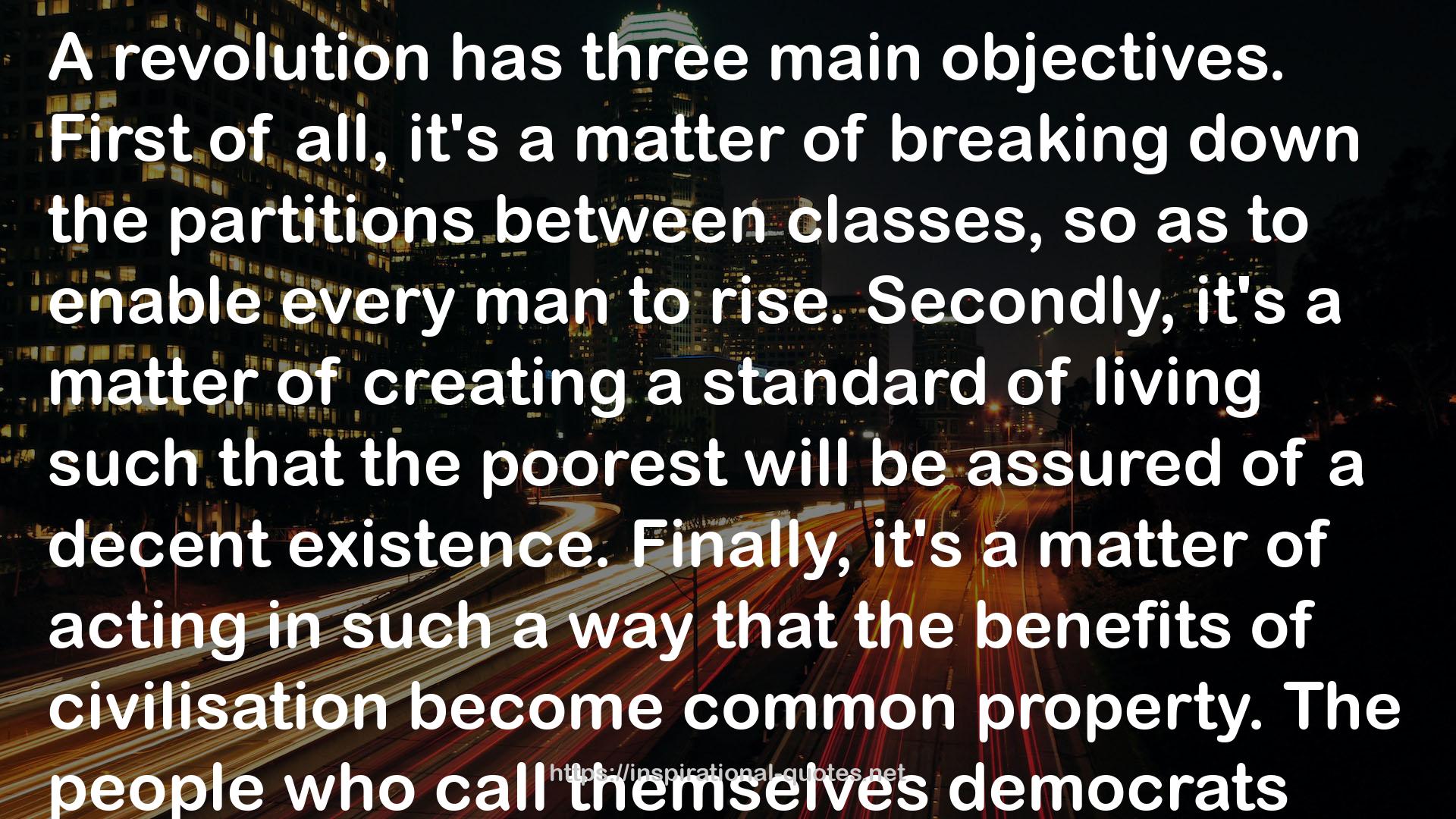" A revolution has three main objectives. First of all, it's a matter of breaking down the partitions between classes, so as to enable every man to rise. Secondly, it's a matter of creating a standard of living such that the poorest will be assured of a decent existence. Finally, it's a matter of acting in such a way that the benefits of civilisation become common property.
The people who call themselves democrats blame us for our social policy as if it were a kind of disloyalty: according to them, it imperils the privileges of the owning classes. They regard it as an attack on liberty; for liberty, in their view, is the right of those who have power to continue to exercise it. I understand their reaction very well—but we had no choice. National Socialism is a purely German phenomenon, and we never intended to revolutionise the world. It was enough for us to be given a free hand in Russia and to be offered a few colonies. And the English could still be leading their comfortable little existence. It's obvious that, in the long run, they couldn't have avoided certain social reforms. One can't, in fact, bridge the gap that exists between rich and poor merely with the consolations of religion. I realise, for my own part, that if I were offered the choice between nakedness on this earth (with the compensation of supreme happiness in the world beyond) and an earthly paradise, I certainly wouldn't choose to sing Hallelujahs until the end of time. "
― Adolf Hitler , Hitler's Table Talk, 1941-1944
